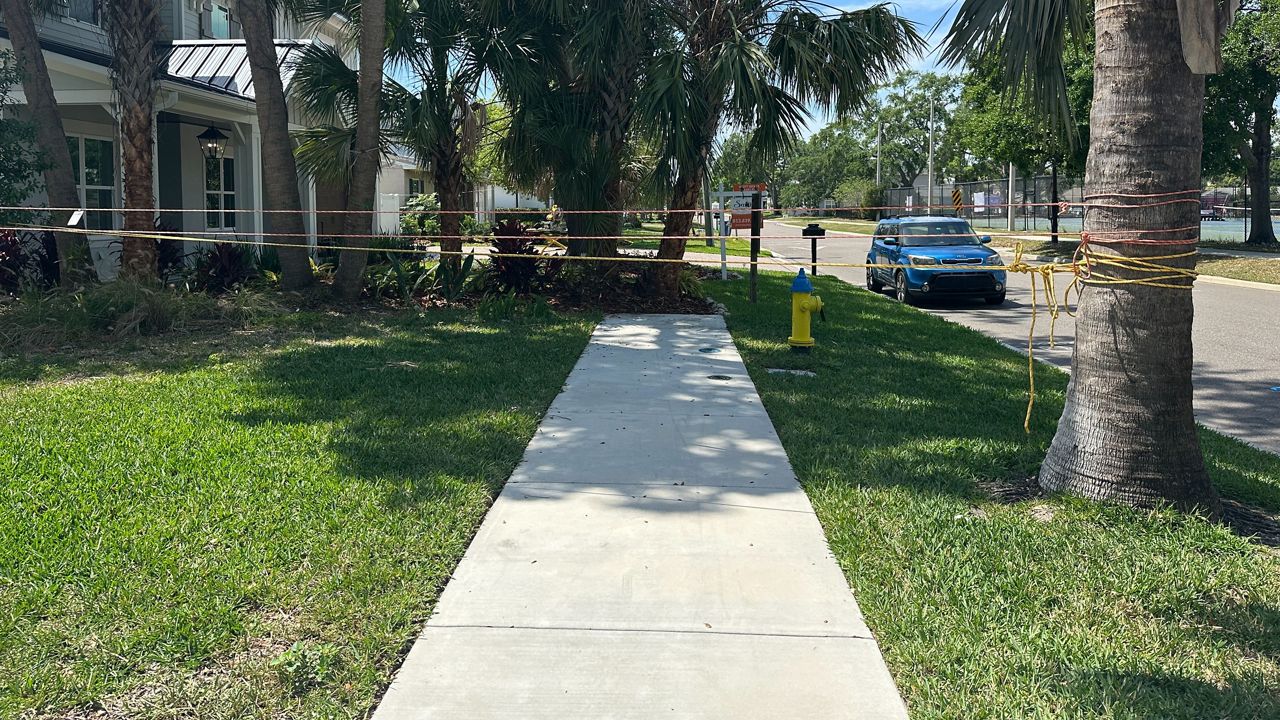TAMPA, Fla. — A Bay Area book author, who always viewed her mother as her hero, stumbled on some information that revealed her mother was actually a hero in World War II.
What You Need To Know
- A local book author discovered that her mom served as a nurse with the Tuskegee Airmen
- She interviewed others that served to write a book about that time
- Black nurses at the time weren't allowed into the Red Cross
Pia Jordan, who said she knew about her mother’s career in nursing, but when she learned about her being one of the first Black nurses in the military with THE Tuskegee Airmen, she knew she had to tell anyone who would listen.
“She had graduated 1942 from St. Phillip High school of nursing in Richmond, Virginia, which was a segregated nursing school,” Jordan said.
Jordan’s late mother was Louise Virginia Lomax Winters. Jordan said she learned more as she was looking through her mother’s room.
“As I was looking through this scrapbook, I’m going, oh my goodness, she was with the Tuskegee Airmen,” she said. “I saw all of these pictures with the airmen and the nurses with the airmen.”
She said, first there was shock. Then she remembered what she knew about the Tuskegee Airmen.
“The fact that in 1925 the war college report said African American men couldn’t be officers, they weren’t smart enough, they weren’t courageous enough to fly planes, the Tuskegee Airmen were the ones who helped protect the white bombers overseas in Italy,” Jordan said.
This was when she started piecing together her mother’s role in the war.
“There were no nurses initially because to be in the army nurse corps, you had to be white. There were no black nurses in the nurse corps. You had to be a member of the American Red Cross and have your membership card. Black nurses weren’t allowed in the Red Cross,” said Jordan.
But as the war ramped up, that changed.
“There was one nurse. Her name was Della Rainey, who became the principal chief nurse at Tuskegee Army flying school. And she wrote a letter to the head of the American Red cross saying I want to do something for my country, let me do this. So, they sent her a card,” she said.
Learning that made her even more proud to see this picture in her mother’s scrapbook.
“She was the first African American woman in the army nurse corps during World War II,” she said. “So, she is quite famous and the fact that she was standing in the front row, next to my mother.”
Her mother, standing side by side with fellow Tuskegee Airmen Nurses in World War II, made her proud.
“The nurses were commissioned officers in the army nurse core. They went in as second lieutenant and what happened is, the airmen who were just training to fly planes, they were young guys, maybe late teens, early 20s, had some college but they had no rank. There were just learning to fly for the military. And so they had to salute the nurses,” Jordan said.
Learning this made her eager to learn more. So, she set out across the country, interviewing Tuskegee Airmen and the nurses who served with them.
“These heroines, the sheroes. Yes, they played their part too. And even for the Tuskegee Airmen, it was one of the airmen who told me, just having these women there with a smile on their face, they really needed that because they were hated,” said Jordan.
She said she learned countless stories. “The African American nurses could only serve Black military personnel, German prisoners or Italian prisoners of war,” she said.
And after hearing about their strength and survival, she knew what she had to do.
“I felt like my mother. I needed to leave some sort of legacy because growing up, it’s like her place in history and the other 27 nurses who served at Tuskegee Army airfield, no one really knew about them,” Jordan said.
Chronicling the experiences of Tuskegee Airmen nurses gave her what she need write her book titled, Memories of a Tuskegee Airmen Nurse and her military sisters. https://store.redtail.org/products/memories-of-a-tuskegee-airmen-nurse-and-her-military-sisters-1
“They played a part in history before even the civil rights movement in the 1960s. So, they laid a foundation, not only for the military, but laid a foundation for the civil rights movement,” said Jordan. “Not only have they opened the door for other African American nurses, they’ve opened the door to broaden the experience of white nurses, nurses of other races.”
Inspiring stories that she said detail Black history, women’s history, and American history.









